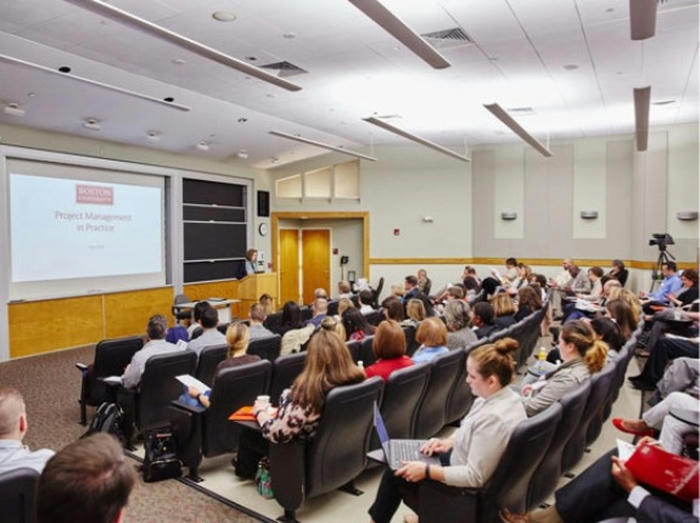University Education Courses: A Pathway to Knowledge and Career Growth
University education courses serve as a crucial foundation for students pursuing higher education, equipping them with specialized knowledge, critical thinking skills, and practical training for future careers. These courses cover a wide range of disciplines, from humanities and social sciences to engineering and medical studies. Selecting the right courses can influence academic success, professional opportunities, and personal development.
This article explores different types of university education courses, their benefits, key considerations when choosing a program, and a real-life case study of a student who successfully navigated the university education system.

Types of University Education Courses
University courses are generally divided into three main categories: core courses, elective courses, and specialized courses. Understanding the differences between these can help students plan their academic journey more effectively.
###1. Core Courses
Core courses provide the fundamental knowledge required for all students, regardless of their major. These courses typically include subjects like:
Mathematics
English composition and literature
Natural sciences (biology, physics, chemistry)
Social sciences (history, economics, political science)
These subjects enhance critical thinking, communication skills, and interdisciplinary knowledge, ensuring that students develop a well-rounded academic foundation.
2.Elective Courses
Elective courses allow students to explore interests beyond their primary field of study. These courses offer flexibility and help students develop additional skills that may be useful in their careers. Examples include:
Psychology for engineering students
Business communication for science majors
Foreign languages to enhance global opportunities
Taking electives outside a primary discipline can improve adaptability and career prospects in an increasingly competitive job market.
3.Specialized Courses
Specialized courses focus on advanced topics within a specific discipline. These courses are required for students majoring in a particular subject. Examples include:
Structural engineering for civil engineering majors
Clinical pathology for medical students
Marketing strategies for business students
These courses provide in-depth knowledge and technical skills necessary for professional certification and career advancement.

The Benefits of University Education Courses
University education courses offer numerous advantages, ranging from personal growth to career opportunities. Some of the key benefits include:
1.Career Preparation and Skill Development
University courses equip students with both theoretical knowledge and practical skills required for professional success. Programs in fields such as business, healthcare, and technology integrate hands-on training, internships, and industry partnerships to ensure graduates are job-ready.
2.Critical Thinking and Problem-Solving Skills
Courses designed around research, analysis, and practical application help students develop critical thinking skills. These abilities are valuable across all career paths, allowing graduates to approach problems creatively and make informed decisions.
3.Networking and Industry Exposure
Many university programs include guest lectures, industry visits, and collaborations with organizations. These opportunities provide students with exposure to real-world challenges and help build professional networks that can be beneficial for future job placements.
4.Personal and Academic Growth
Beyond career advantages, university courses contribute to personal growth by improving communication skills, leadership abilities, and cultural awareness. Courses in philosophy, sociology, and ethics help students understand diverse perspectives, fostering global awareness and adaptability.
How to Choose the Right University Education Courses
Selecting the right courses is crucial for academic success and long-term career satisfaction. The following factors should be considered when making course decisions:
1.Career Goals and Interests
Understanding personal interests and career aspirations is the first step in choosing a suitable course. Those interested in technology should explore fields like computer science or data analytics, while individuals passionate about healthcare might consider nursing or biomedical sciences.
2.Course Accreditation and Recognition
Accredited programs ensure that degrees and certifications are recognized by employers and professional organizations. Students should verify the accreditation status of their chosen program to avoid issues with employment or further education.
3.Teaching Methodologies and Learning Format
Different programs offer varying teaching methodologies, such as:
Traditional in-person lectures
Online courses with flexible schedules
Hybrid programs combining both methods
Selecting a format that aligns with a student’s learning style and availability can enhance academic performance and overall experience.
4.Faculty and Industry Connections
University courses taught by experienced faculty members with industry experience provide a significant advantage. Programs that offer industry partnerships, internships, or mentorship opportunities can lead to better job placements after graduation.
5.Financial Considerations and Scholarships
Understanding tuition fees, available scholarships, and financial aid options is crucial before enrolling in any program. Certain universities offer financial assistance based on academic performance, research projects, or community service involvement.
Real-Life Case Study: Overcoming Challenges in University Education
Meet Alex: A Student's Journey Through University Education
Alex, a high school graduate passionate about environmental science, faced significant challenges when selecting a university program. Initially uncertain about which courses would best align with career goals, Alex considered several factors, including program reputation, faculty expertise, and potential career paths.
Step 1:Research and Decision-Making
After extensive research, Alex chose a Bachelor of Science in Environmental Engineering due to its strong emphasis on sustainability and real-world applications. The program combined fieldwork, laboratory research, and policy analysis, providing a well-rounded education.
Step 2:Facing Academic and Financial Challenges
During the first year, Alex struggled with complex subjects such as advanced chemistry and environmental law. To improve academic performance, Alex sought guidance from professors, participated in peer study groups, and attended industry workshops.
Financial challenges also arose, leading Alex to apply for a merit-based scholarship and a paid internship at a renewable energy firm. These opportunities provided financial stability and valuable industry experience.
Step 3:Gaining Practical Experience and Career Opportunities
By the final year, Alex had completed multiple research projects on sustainable water management and presented findings at an international conference. Networking through university-sponsored events led to a job offer from an environmental consultancy firm before graduation.
Outcome: A Successful Career Launch
Alex’s journey demonstrates the importance of:
Carefully selecting courses aligned with career goals
Seeking academic support and industry connections
Utilizing financial aid and internship opportunities for hands-on experience
Today, Alex works as an environmental consultant, contributing to sustainability initiatives worldwide. This success story highlights how strategic course selection and proactive engagement can lead to a fulfilling career.
Conclusion: Making the Most of University Education Courses
University education courses serve as stepping stones to personal and professional success. With the right combination of core, elective, and specialized courses, students can tailor their education to match their aspirations. The benefits of these courses extend beyond academics, offering career advancement, networking opportunities, and personal development.
Selecting the right courses requires careful planning, research, and awareness of career trends. Whether pursuing a degree in science, business, arts, or technology, the right university education courses can pave the way for a successful and fulfilling future.
For those considering higher education, investing time in choosing the best courses can be the key to unlocking limitless opportunities in the professional world.
